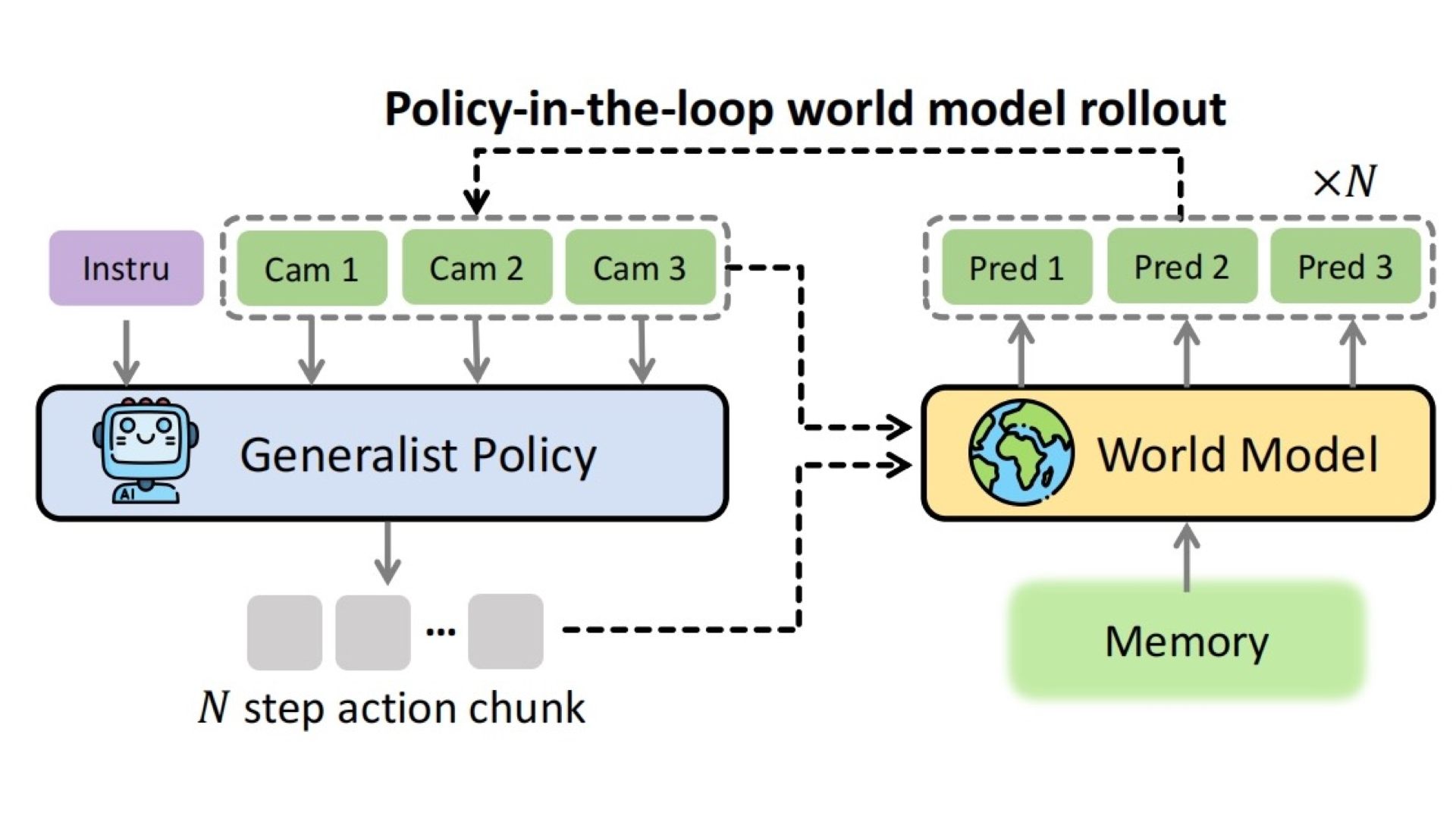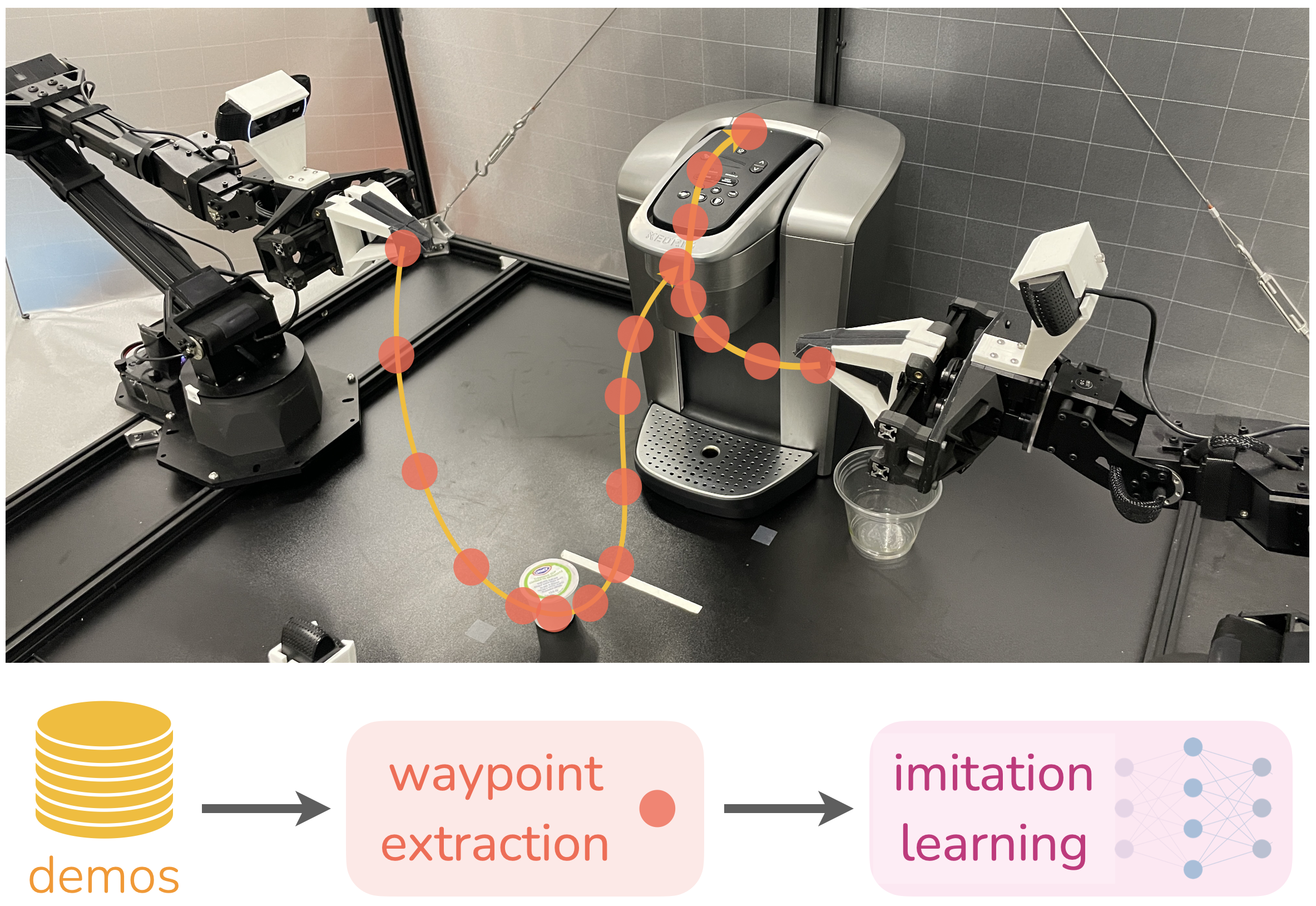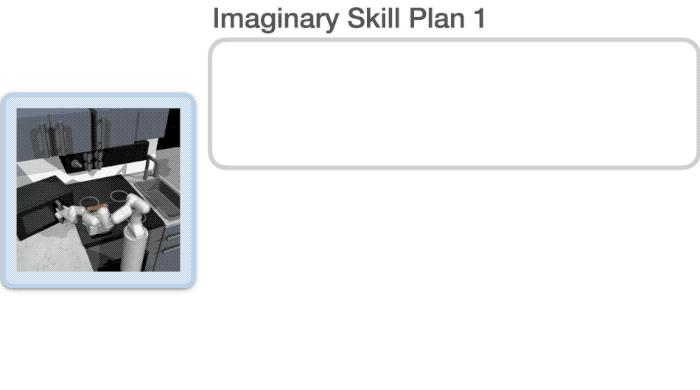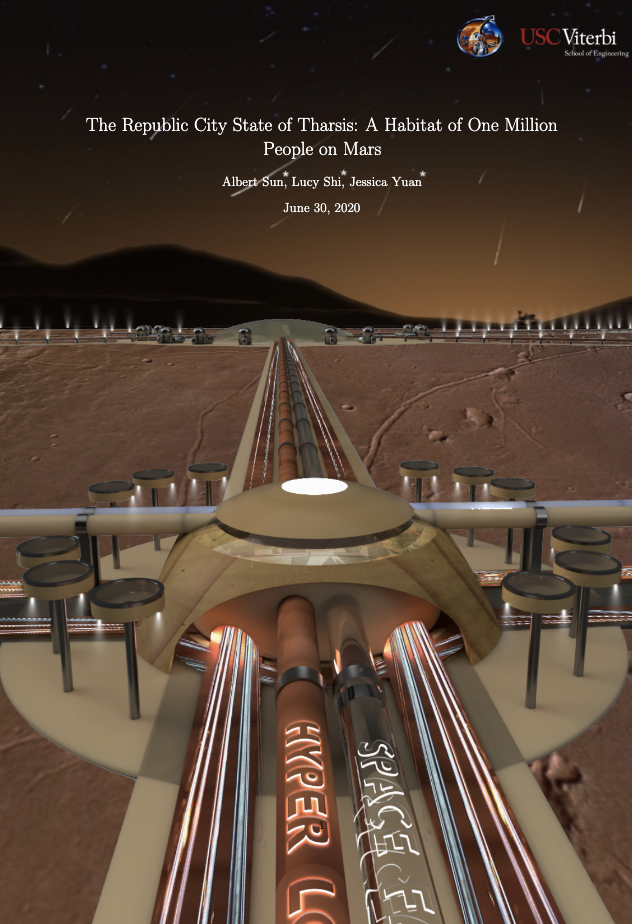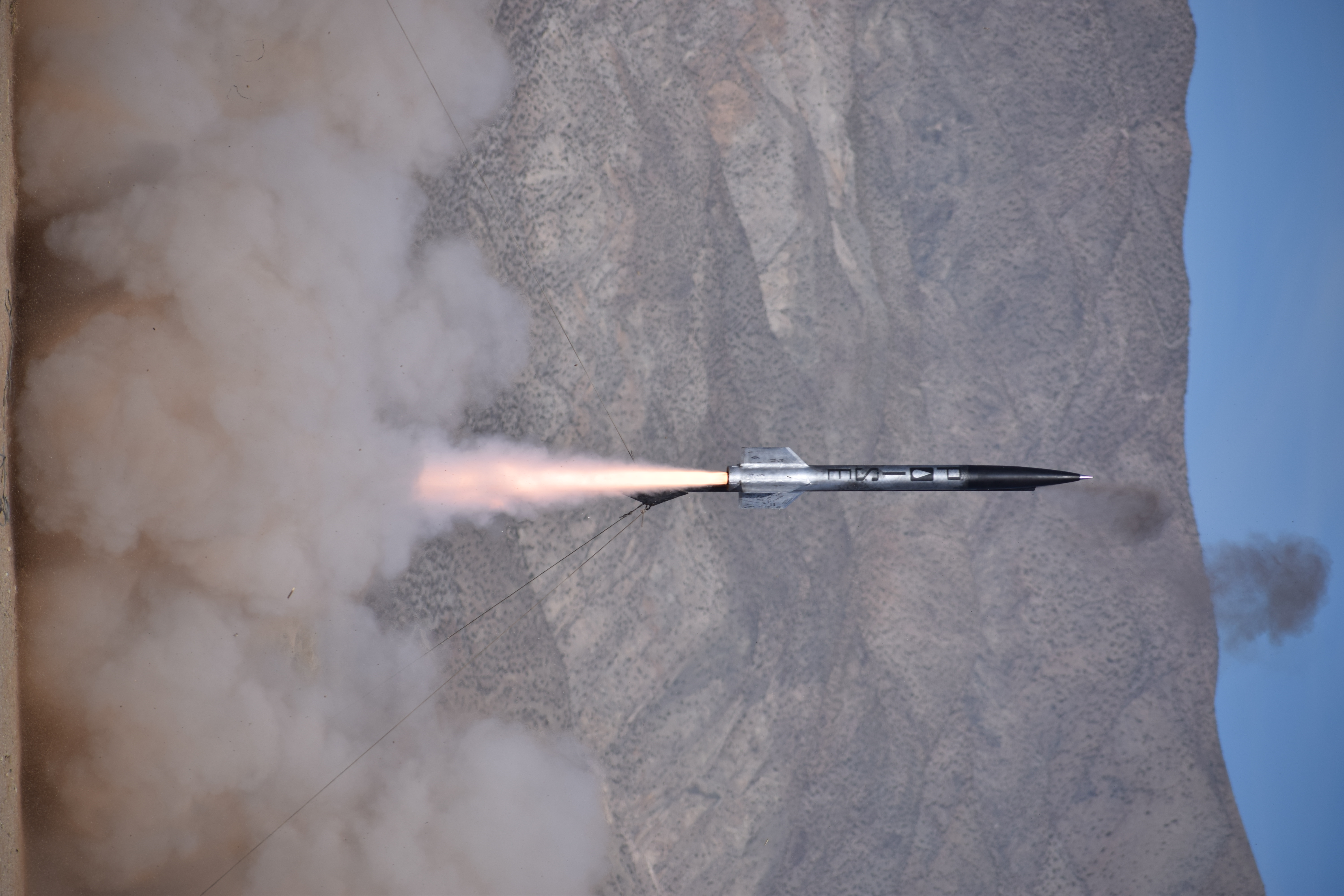About
I am a CS PhD student at Stanford, advised by Chelsea Finn, and a researcher at Physical Intelligence (Pi). Previously, I worked with Yuke Zhu and Jim Fan at NVIDIA Research. I received my Bachelor’s degree in CS from USC, advised by Joseph J. Lim and Youngwoon Lee.
I am broadly interested in robot learning. My research goal is to create general-purpose robots that seamlessly perform complex, long-horizon tasks in our daily lives — from homes to factories, handling both the tedious and the dangerous. I am drawn to developing simple methods that scale well with compute and data.
I deeply believe in human ingenuity and the potential of AI. My goal for the next 20 years is to become a university professor and I want to establish the next Bell Labs — the idea factory that revolutionized the world for the better.
News
- [Oct, 2025] Invited talk at the Multi-Modal Reasoning for Agentic Intelligence workshop at ICCV 2025
- [Jul, 2025] SRT-H has been published in Science Robotics, and featured on the cover
- [Jun, 2025] Invited talk at the Robot Planning in the Era of Foundation Models workshop at RSS 2025
- [Jun, 2025] Hi Robot received the Best Paper Runner-up at SemRob at RSS 2025
- [Jun, 2025] Co-organizing the Learning Effective Abstractions for Planning (LEAP) workshop at CoRL 2025
- [Nov, 2024] Co-organizing the Cross-Embodiment Robot Learning workshop at CoRL 2024
- [Oct, 2024] Our work on general-purpose robot foundation model (π-0) was featured in WIRED, The New York Times, etc. See the paper and blog post for more details
- [Sep, 2024] I started my PhD, supported by Stanford SoE Fellowship
- [Mar, 2024] I joined Physical Intelligence (π) as one of the first team members
- [Mar, 2024] Media coverage on YAY Robot
- [Aug, 2023] Invited talk at Google DeepMind and BARS on AWE
- [Feb, 2023] Invited talk at MILA on skill-based and model-based RL
Selected Research
See Google Scholar for more publications.
Ctrl-World: A Controllable Generative World Model for Robot Manipulation
Yanjiang Guo*, Lucy Xiaoyang Shi*, Jianyu Chen, Chelsea Finn
International Conference on Learning Representations (ICLR), 2026
paper / project / code / twitter /
A controllable world model that can evaluate and improve VLA policies.
Hi Robot: Open-Ended Instruction Following with Hierarchical Vision-Language-Action Models
Lucy Xiaoyang Shi, Brian Ichter, Michael Equi, Liyiming Ke, Karl Pertsch, Quan Vuong, James Tanner, Anna Walling, Haohuan Wang, Niccolo Fusai, Adrian Li-Bell, Danny Driess, Lachy Groom, Sergey Levine, Chelsea Finn
International Conference on Machine Learning (ICML), 2025
paper / project / twitter /
We are teaching robots to listen and think harder.
Yell At Your Robot: Improving On-the-Fly from Language Corrections
Lucy Xiaoyang Shi, Zheyuan Hu, Tony Z. Zhao, Archit Sharma, Karl Pertsch, Jianlan Luo, Sergey Levine, Chelsea Finn
Robotics: Science and Systems (RSS), 2024
paper / project / code / twitter /
YAY Robot leverages verbal corrections to enable on-the-fly adaptation and continuous policy improvement on complex long-horizon tasks.
Cross-Episodic Curriculum for Transformer Agents
Lucy Xiaoyang Shi*, Yunfan Jiang*, Jake Grigsby, Linxi 'Jim' Fan†, Yuke Zhu†
Neural Information Processing Systems (NeurIPS), 2023
paper / project / code / twitter /
CEC enhances Transformer agents’ learning efficiency and generalization by structuring cross-episodic experiences in-context.
Waypoint-Based Imitation Learning for Robotic Manipulation
Lucy Xiaoyang Shi*, Archit Sharma*, Tony Z. Zhao, Chelsea Finn
Conference on Robot Learning (CoRL), 2023
paper / project / code / twitter /
We propose an automatic method for extracting waypoints from demonstrations for performant imitation learning.
Skill-based Model-based Reinforcement Learning
Lucy Xiaoyang Shi, Joseph J. Lim, Youngwoon Lee
Conference on Robot Learning (CoRL), 2022
paper / project / code / twitter /
We devise a method that enables model-based RL on long-horizon, sparse-reward tasks, allowing us to learn with 5x less samples.
Research Interests
Within deep reinforcement learning, embodied AI, and robotics, I am particularly interested in:
Model-based learning: build internal world models of the embodied self and the world to develop a general understanding and improve sample-efficiency in learning through planning.
Hierarchical / Skill-based learning: enable long-horizon task learning through temporal abstraction and guided exploration.
Representation learning: autonomously infer and discover the underlying temporal, spatial, and causal structures of the input across different modalities for efficient decision-making and generalization.
A sample of other topics that I’m also very curious about: generative models, external memory, and learning from human videos.
Other Projects (Technical Reports/Talks)
- Quantum Mechanics for Next-Gen Spacecrafts, advised by Dr. Rahul Rughani and Prof. David Barnhart, 2020
- Avionics R&D in Rocketry, advised by Dr. Paul Giuliano, 2019-2021
- (Subscale) Nuclear Thermal Rocket Engine, advised by Dr. Charles Radovich and Dr. Matthew Gilpin, 2019-2020
A mountain of gratitude for people who have kindly mentored me and inspired me with their vision and passion!
Teaching and Mentoring
- Mentor for Stanford CS undergraduate mentoring program, 2024-2025
- Course Producer for CSCI 270: Algorithms, 2022
- First-generation student mentor, 2021
- Public speaking tutor, 2020
Misc
In my free time, I enjoy reading, bouldering, and hiking. I also like exploring new places, primarily through casual runs or getting lost in the wild. I love living everyday as an adventure — and this is especially the case when I invite friends to try the novel-flavored cookies I just baked. :)
Below I expand a little bit on some fun experiences that have shaped the way I think.
Envision a home on Mars
With my two brilliant friends Jessica Yuan and Albert Sun we published a paper exploring a Mars city state of 1 million people. We were the only undergraduate team to win the finalist (10 /176) and present at the 23rd Annual International Mars Society Convention. The paper was also later included as a chapter in the book, Mars City States: New Societies for a New World, published in 2021.
Looking back, it was a wonderful summer of reading and thinking intensively to paint a coherent picture of the future. It gave me an epiphany that a myriad of things in the world are profoundly connected, and AI will be an important driving force behind many things I care about — like an interplanetary humanity, robotics, and universal education.
Schrödinger’s me
I once worked with a group of physicist and engineers to experimentally analyze the quantum theory quantized inertia as an alternative to dark matter. As far as I know the experiments haven’t been fruitful so far and we still have no proof / disproof for this quantum theory or even the dark matter. But I had a ton of fun learning about puzzles in quantum physics along the way! This experience also trained me to question the fundamental and think from first principles.
Literally “Rocket Science”
In parallel to the physics stuff I was also an avionics engineer at the USC Rocket Propulsion Lab (think: build brains for rockets). We are the first student group to successfully launch and recover an entirely student-designed rocket (Traveler IV) past the Karman line, the recognized boundary of space at 100 km (328,084 ft)! There were so many difficulties to overcome, but launching a rocket in desert is one of my best college memories! I love this group of people — they are ambitious, hungry for getting things to work, and incredibly caring. They also taught me if you care about something deeply enough, the reality becomes negotiable.
A Quest for Meaning
I wasted a lot of misguided, youthful time thinking about the following three questions:
- Why does the universe exist?
- Why does humanity exist?
- Why do I exist?
I like reading philosophy, which humbles and inspires me (fun fact: I once majored in it!). So don’t be too surprised if we suddenly start discussing the meaning of life in a casual conversation (I won’t make it scary, I promise). ;)
However, now instead of analyzing the limit of reasoning, I want to use my ability of reasoning to push the limit of reasoning. At present Artificial Intelligence is my best answer.
